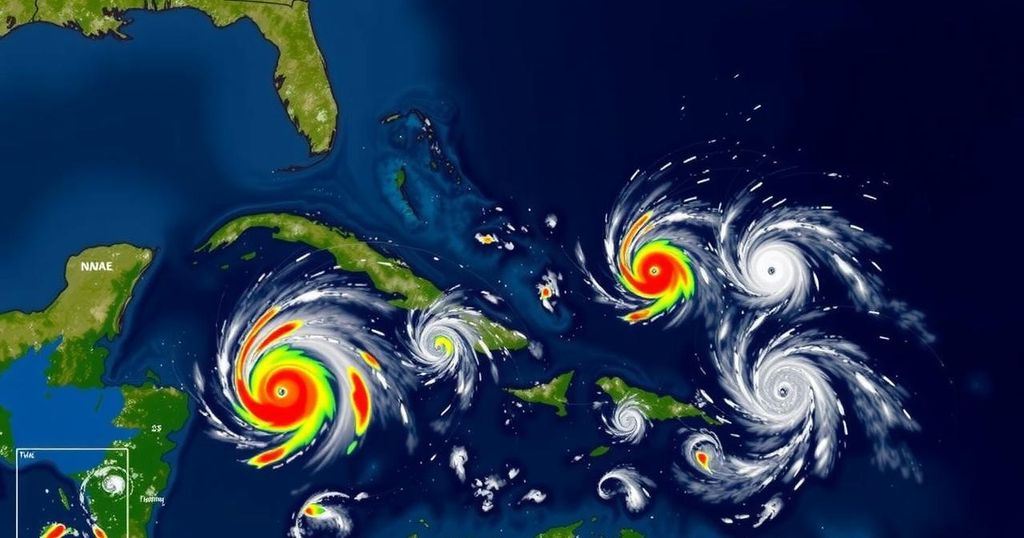Recapping the Record-Breaking 2024 Atlantic Hurricane Season

The 2024 Atlantic hurricane season was historically active, featuring 18 named storms, including 11 hurricanes and 5 major hurricanes. Key events included Hurricane Beryl as the earliest Category 5 storm, Hurricane Helene’s record lethality, and Hurricane Milton’s rapid intensification and unprecedented multiple hurricane presence in October. Hurricane Rafael highlighted the rarity of late-season storms in the Gulf, culminating in a record-setting season overall.
The conclusion of the 2024 Atlantic hurricane season revealed an unprecedented level of activity, surpassing initial predictions by experts. With 18 named storms, including 11 hurricanes and 5 major hurricanes, the season was significantly more active than the average, which typically sees 14 storms and consists of fewer hurricanes. High sea surface temperatures and favorable atmospheric conditions were pivotal in shaping this historic season.
Hurricane Beryl stood out as the earliest Category 5 hurricane on record, damaging parts of Texas and the Louisiana coast after reaching a peak strength of 140 mph. Additionally, Hurricane Helene generated catastrophic flooding along the Gulf Coast and was notably the deadliest hurricane since Hurricane Katrina, resulting in over 150 fatalities. The National Hurricane Center made a record prediction for Helene’s intensification prior to its development into a tropical depression.
Hurricane Milton, gained notoriety for its rapid intensification, marking one of the fastest increases in wind speed ever documented. Peaking at 180 mph, Milton made landfall in Florida as a Category 3 storm, inciting tornado activity and extensive rainfall, which compounded flooding issues across the region. This storm’s formation marked a historic event: for the first time, three hurricanes were observed simultaneously in the Atlantic during October, underscoring the season’s unusual characteristics.
Late into the season, Hurricane Rafael maintained strength for an unusually long duration after making landfall in Cuba. Its presence in the Gulf of Mexico in November was rare, with only a handful of storms recorded in that period since 1980. The conclusion of the hurricane season saw a total of 12 named storms emerging after the peak period, further emphasizing a record-breaking year for hurricane activity in the Atlantic.
The 2024 Atlantic hurricane season was marked by exceptionally high activity, which exceeded the expectations set by meteorologists. Enhanced by warm sea-surface temperatures and a transition away from El Niño conditions, the season saw varied storms, with a significant number classified as hurricanes. Increased storm activity can lead to heightened risks of severe weather events, necessitating close monitoring and research to improve future forecasting and preparedness strategies.
In summary, the 2024 Atlantic hurricane season has been unprecedented in its intensity and record-breaking statistics. With a total of 18 named storms, including notable hurricanes like Beryl, Helene, Milton, and Rafael, the season underscored the increasing volatility of weather patterns due to climate change influences. As we reflect on this year’s events, it becomes increasingly important to enhance forecasting and mitigation strategies to prepare for future hurricane seasons.
Original Source: www.nola.com






